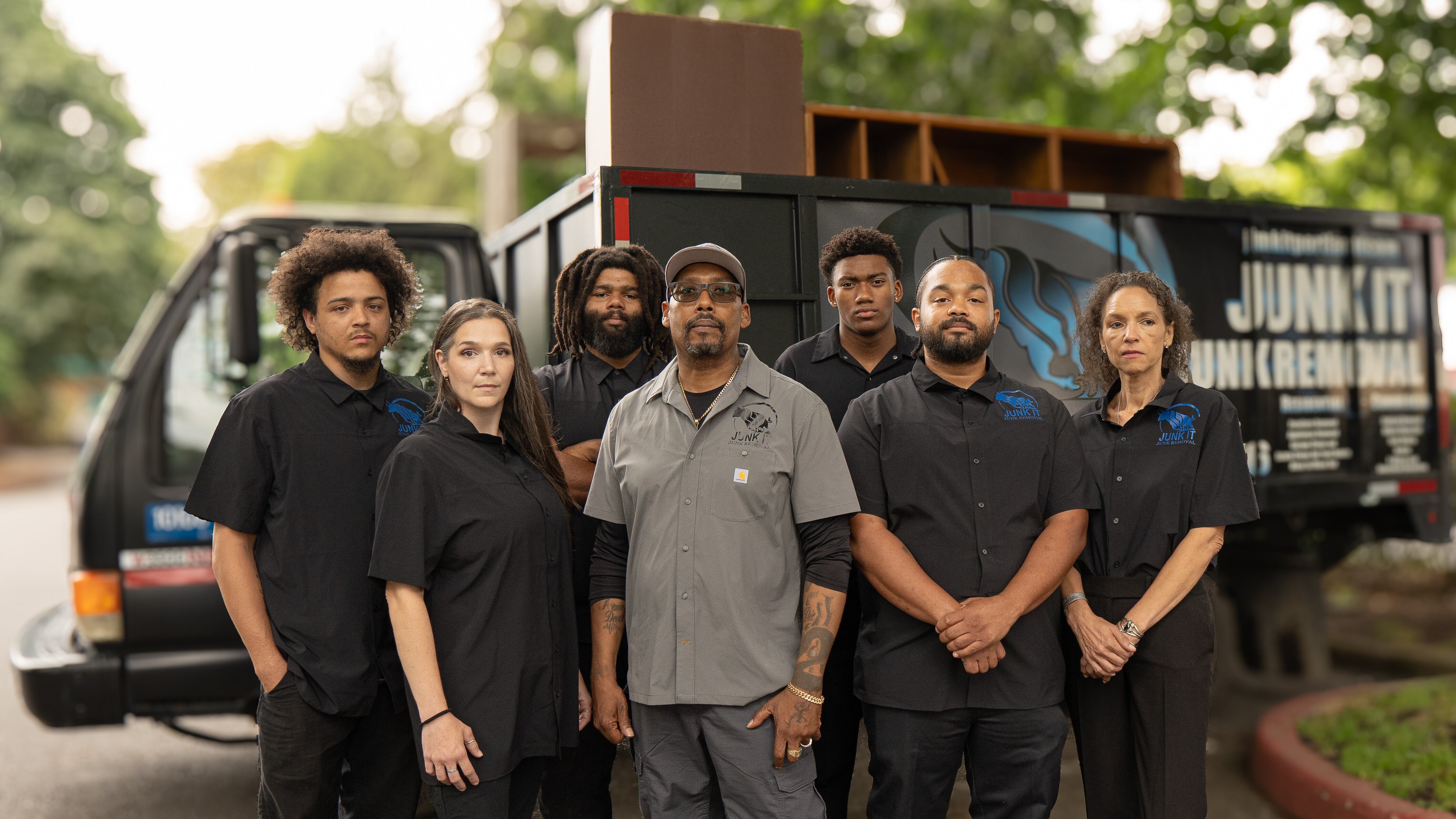Looking for entrepreneurs who embody Portland’s spirit of creatively filling a niche market’s needs with a spirit of radical acceptance? Look no further than the Junk It Junk Removal crew.
Dupree Carter and his wife, Michelle Barrows-Carter, founded Junk It in 2012. They financed a pickup truck, recruited family members, including their adult children, and got to work.
Junk It’s commercial property tasks can range from light trash removal to equipment recovery, micro-trash cleanup to security work. Multnomah County, the city of Portland and Metro also work with Junk It. The company is committed to diverting reusable materials from the landfill—a recent run to Multnomah County Central Library, for instance, to remove 100 outdated pieces of furniture led to refurbishing them through the nonprofit Trash for Peace and selling most of the pieces to clients such as the nonprofit Street Roots. Junk It also provides trash removal services for camps of unhoused people—not when their encampments are swept away, but to help campers keep their temporary communities clean.
“What’s really heartwarming about this is when we were at Delta Park and people living out there would come up to us and ask, ‘Can we help you?’ because they wanted to get their area cleaned up, and when you don’t have trash service, that’s hard,” Barrows-Carter says.
For private customers, Junk It works not only on disaster recovery from events like fires and floods, but also on deep-clearing the homes of living and deceased people who compulsively hoard. Carter says he worked with hoarders long before the A&E reality show brought the mental health disorder into popular awareness. The condition is still poorly understood by clinical psychology, but people who exhibit its symptoms and their immediate families often carry a deep sense of shame around the unrestrained mess or its root causes. Barrows-Carter says Junk It trains recruits on how not only to perform the physical labor associated with clearing out homes, but to do so with empathy and sensitivity to what a hoarder and/or their family feels during a clean.
“We firmly believe that people shouldn’t be judged for what they’ve done in the past,” she says, “but for who they are now.”

